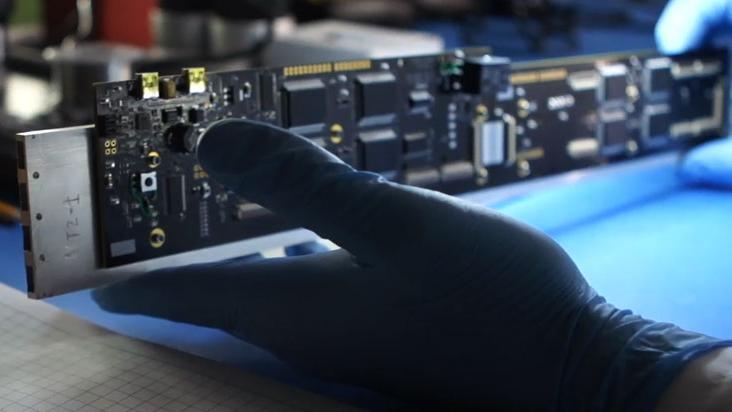This Redmond-built Portable Satellite Is About To Change The Way The Maritime Industry Communicates
Redmond-based satellite technology company Kymeta on Wednesday announced a deal with Panasonic Avionics Corp. to bring the startup’s lightweight flat-panel antennas to the maritime industry.
Panasonic will purchase a “significant volume” of Kymeta’s antennas – which will go through commercial testing this year and hit the market in 2017 – for use on maritime vessels. Financial terms of the deal were not disclosed.
Kymeta creates a new solid-state way to find and lock onto signals from orbiting satellites, a feat in the past was accomplished only with large, physical satellite dishes. The point of the technology is to bring down the cost of satellite connectivity and make it so portable that a plane, boat or car can connect to the internet.
Traditional maritime antennas can weigh hundreds of pounds, require weeks for installation and use parts that break easily or are difficult to maintain. Kymeta’s mTenna technology can be carried onboard by hand. The prototype weights 40 pounds, but a spokesperson for the company said by the time the antenna reaches the market it will weigh 20 pounds.
“Kymeta’s goal is to use our mTenna technology to help realize the power of a truly connected future for any platform that moves around the world, and this agreement is another major milestone towards that goal,” said Kymeta CEO Nathan Kundtz.
Kymeta, which spun out of Bellevue-based Intellectual Ventures in 2012, is backed by Bill Gates. Kundtz, who founded the startup, took over as CEO early last year after Vern Fotheringham stepped down at the end of 2014.
As part of the deal, Panasonic, which has its own satellite network, will also purchase a new Kymeta technology that makes antennas more powerful and increases the internet connection speed.
